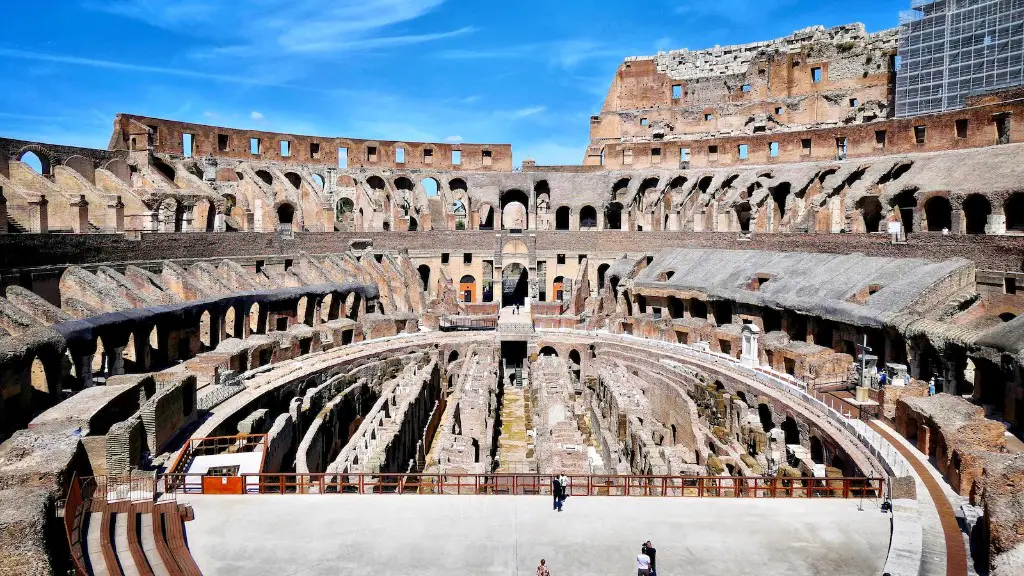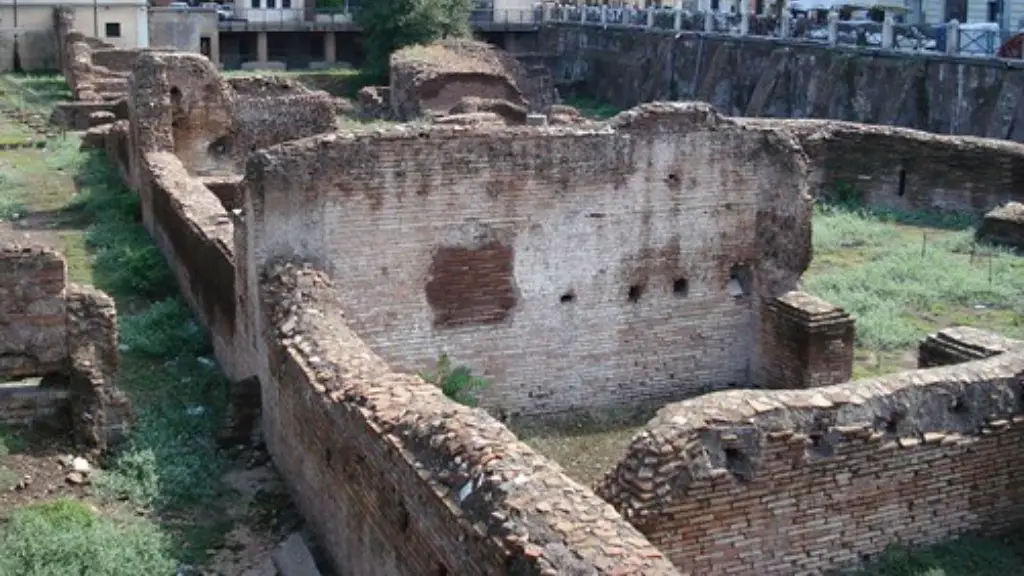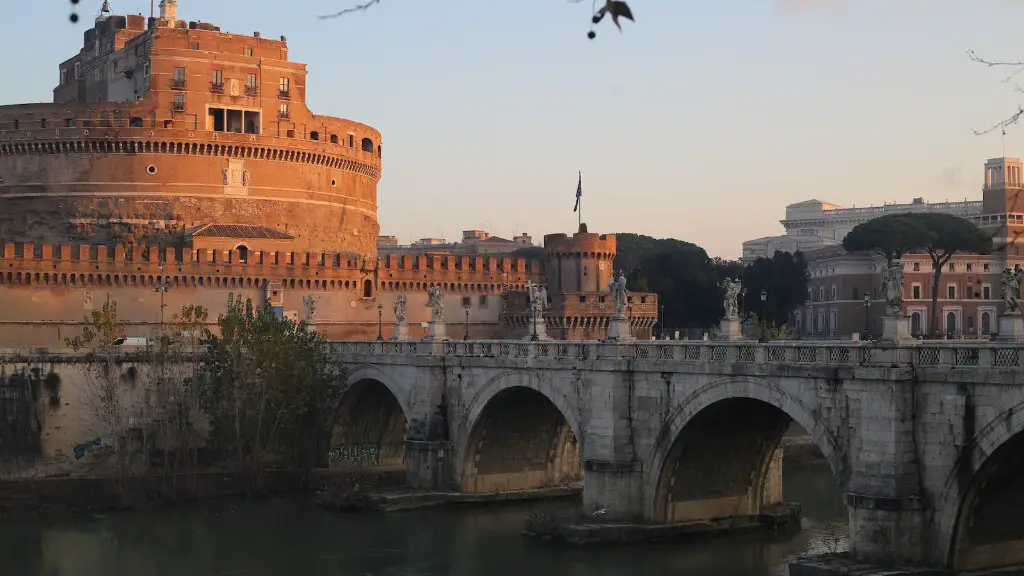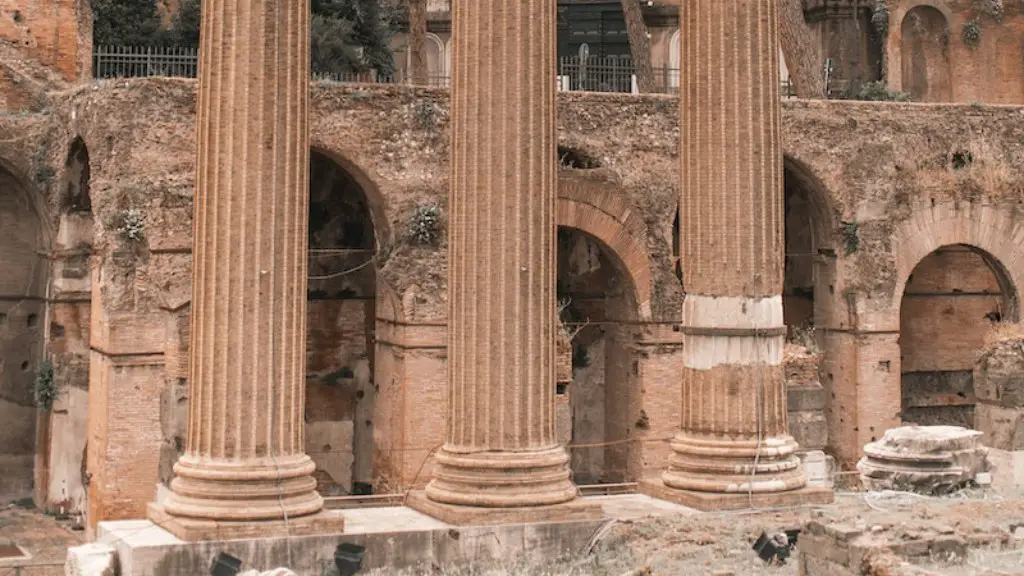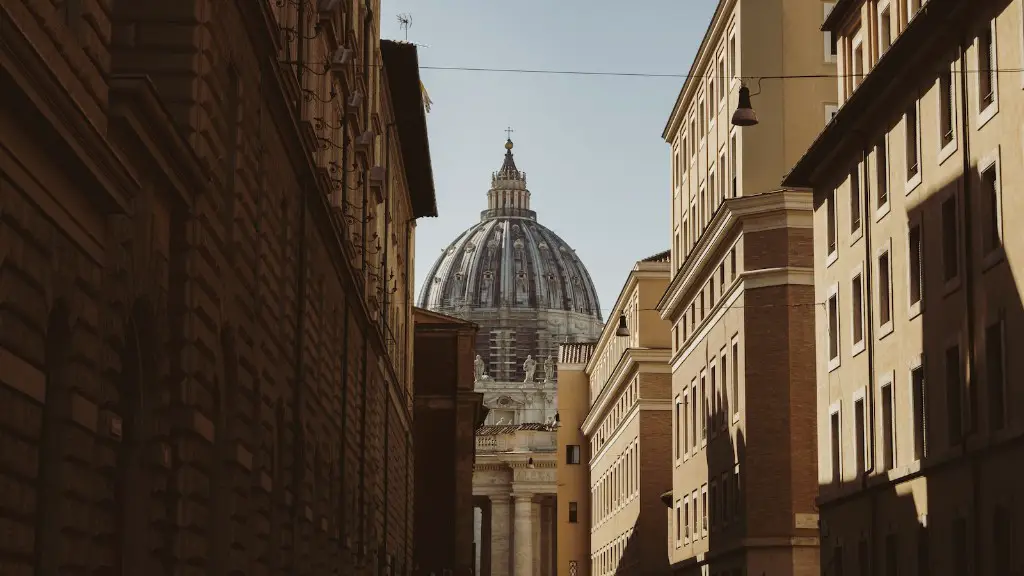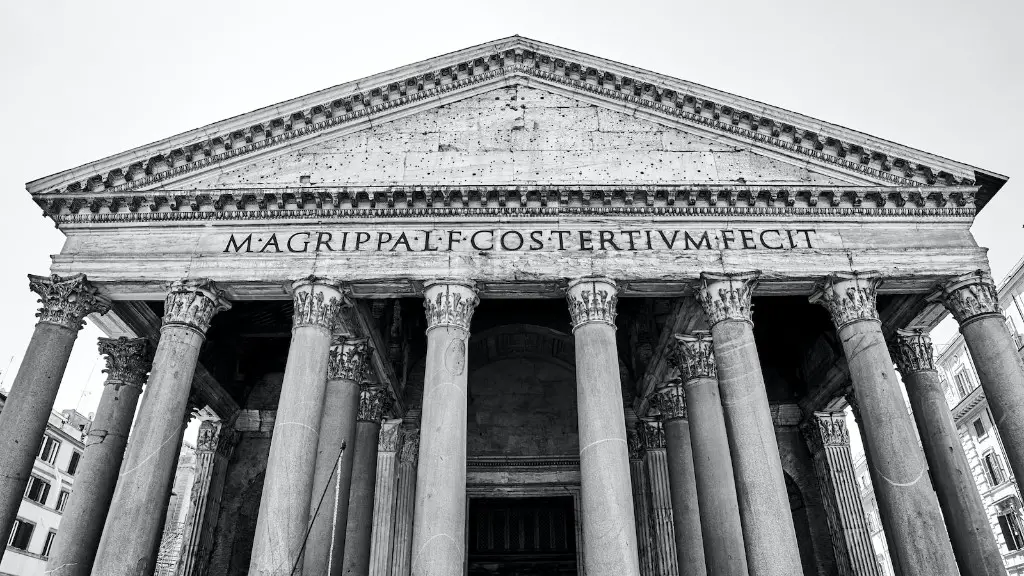The Roman Empire, extending across Europe and into parts of the Middle East and Africa, was one of the most politically sophisticated civilizations in antiquity. Its achievements included the development of representative government, efficient bureaucracy, and a vast legal code. Ancient Rome was the center of a vibrant, expansive culture encompassing language, art, architecture, engineering, and military science. The city of Rome was the capital of the Roman Empire from its earliest years, and its political importance only increased throughout its history. Rome has been cited as an example of the “modern city” both for its contributions to early European civilization, and for its influence on subsequent cultures and political thought.
At its peak, the Empire controlled vast tracts of land spanning from the North Sea to the Black Sea, and from the Atlantic Ocean to the Middle East. The central political authority was the Roman Senate, an assembly of wealthy and influential citizens who represented the interests of the city of Rome. Peers of the Senate held public offices of varying degrees of authority, including consuls, tribunes, and censors. These various officials were responsible for the governance of the vast territories under the Empire’s control. Civilian magistrates, military commanders, and provincial governors all reported to the Senate, which in turn took its cue from the will of the people.
The Roman Republic was structured according to a system of checks and balances that prevented any one branch of government from becoming too powerful. This elaborate system of checks and balances was used to ensure that no one individual had too much sway over the government. In addition, the people were able to both elect their leaders and directly influence the passage of laws, ensuring that their voices were heard. These measures of accountability, such as freedom of speech and the inviolability of property, were precursors to the democracy we enjoy today.
The Senate’s power was eventually supplanted by that of the Emperor, a single figurehead who assumed absolute control of both the military and the civil administration. He wielded immense political power, overseeing all aspects of the Empire’s administration and issuing decrees without the approval of the Senate. The emperors created a central bureaucracy to manage the vast territories under the Imperial administration. This bureaucracy was modeled on the Senate and was staffed by individuals appointed by the Emperor.
This transformation of the Roman government was accompanied by a shift in economic policy that established a market economy. Emperors issued edicts that imposed taxes, created public works projects, and regulated business activities. This opened the door to a period of unparalleled economic growth, as the Roman Empire reached its zenith at the end of the first century A.D.
Ancient Rome was a great influence on the development of modern political thought, and it provides valuable insights into the ways in which a society can be organized and governed. The city of Rome and its citizens embraced the concept of a republic, a form of government in which the people assembled and elected representatives to exercise political power on their behalf. Rome also utilized the notion of a law code, which served to regulate the behavior of individuals and resolve disputes that arose between citizens. These two concepts form the basis of modern political theory and continue to be accepted as the basis for law and government in democracies today.
The Impact of Roman Religion on its Political Structure
Religion was a critical facet of the political system in ancient Rome. The polytheistic Roman religion affirmed the power of the gods, who were believed to reside in statues placed in the temples located around the city. Worship of the gods was an essential part of Roman life, and it was believed that the gods had a hand in the fates of individuals, families, and the state. Religious festivals, holidays, and ceremonies were instituted to commemorate important moments in Rome’s history, and religious ceremonies sometimes served as intercessory rituals that could appease the gods. The emperor himself was believed to be divinely appointed and endowed with special powers from the gods.
In addition to providing Roman citizens with a sense of communal identity, religion was also used as a political tool by the ruling classes. Religion was often used to further the aims of the emperor and his court, and the authority of the gods was invoked to validate their political decrees. The participation of Rome’s citizens in religious ceremonies and festivals allowed the elite to manipulate public opinion in their favor. This served to reinforce the power of the state, as the gods were invoked to support the government’s goals and policies. By being closely entwined with civic life and cultural mores, religion played a central role in the politics of ancient Rome.
The Role of Slavery in the Roman Political Order
Slavery had a profound influence on the political structure of the Roman state. Slaves were found in virtually every corner of the Empire; they could be found in cities, on farms, and in mines and were a part of virtually every aspect of Roman life. Slaves were a major part of the Roman economic system, providing labor and services at a fraction of the cost of that of free workers. It is estimated that slaves comprised approximately one-third of Rome’s population at its peak.
The presence of slaves in Rome had a profound impact on the political order. Slaves were bound to their owners, who held enormous power over their lives. This created powerful incentives for the elite to maintain their political power, as their political fortunes were closely linked to the success or failure of their slave population. The presence of slaves in Rome further cemented the power of the state, as large numbers of slaves acted as a means of taxation and helped to fund public works projects. Furthermore, the presence of large numbers of slaves helped to give the Roman state an aura of invincibility, as its armies could muster overwhelming numbers of warriors and laborers to achieve its goals.
The Legacy of Roman Politics in the Modern World
The Roman Empire left behind a impressive legacy of governance and political structure that has deeply influenced contemporary democracies. The classical ideals of democracy, citizenship, and justice are all derived from the Roman system of government, and many of the principles of modern constitutional law can be traced back to Rome. The city of Rome also established representative government as the preferred form of state organization, and its example has been followed by many nations to this day.
The Roman Senate, a deliberative body composed of elected and appointed officials, served as the central decision-making body in the city of Rome. This institution was highly influential in the development of modern parliaments and legislative institutions. Likewise, the system of checks and balances between the various branches of government, developed by the Romans, is mirrored in modern democracies. The separation of powers between the executive, legislative, and judicial branches is one of the most important principles of the Roman model, and it is followed in democracies around the world.
The Roman Empire represented a pinnacle of political achievement in antiquity and served as an example for centuries of leaders to come. Its power and influence continue to be felt in the modern world, as scholars, politicians, and legal experts draw upon the legacy of Roman political thought and structure in their work.
The Relationship between Roman Law and its Political System
The Roman legal system was closely linked to the development of the state’s political structure and vice versa. The Roman Empire drew heavily upon the legal traditions of ancient Greece, codifying and expanding upon these systems to better serve its needs. Roman law was administered by the influential legal body of Rome, the Forum Romanum. This body was composed of high-ranking citizens who held specialized knowledge in matters of law. Men wishing to practice law before the Forum had to undergo a rigorous process of apprenticeship designed to ensure their competence and aptitude.
The Forum Romanum was a highly influential part of the Roman legal and political structure. Along with the courts of appeal and the imperial law-making bodies, it served as the hub of legal activity in the Empire. Its decisions were taken as being a representation of the will of the people, and it served as an arbiter of justice between the state and its citizens. Its decisions set important precedents that were influential in shaping Roman law for centuries to come.
Through the centuries, the legal system of the Roman Empire was used as a model for other governments. Many of the world’s legal systems still hold Roman law as their basis, with countries from Europe to the Middle East and North Africa having adopted the framework established by the Romans long ago.
The Impact of Roman Government on Other Cultures
The Roman Empire was not only influential in its own right, but it also had a profound impact on the cultures and nations around it. Rome was often the source of governments and legal systems for the territories it conquered, and it had a deep influence on the political systems of these regions. As the Roman Empire spread its influence across Europe and the Mediterranean, it introduced new concepts of government, legal systems, and political power. Roman law influenced the formation of legal systems throughout Europe and North Africa, while the political structures of the time were modified to suit the needs of their respective civilizations.
Additionally, Rome had a significant impact on the cultures it encountered. Roman administration and service had a major impact on the culture of the peoples under its rule, and the frescoes and monuments that fill the remains of Roman cities still bear witness to its influence. The Latin language was also adopted by many regions, and its influence can still be seen in the language’s impact on Spanish, Italian, and French. All in all, the impact of Rome on the cultures that encountered it was profound and far-reaching, a lasting reminder of its influence.
The Significance of Ancient Rome in the Development of Political Thought
The contributions of the Roman Empire in the realm of political thought have been a great influence on modern politics and legal systems. The Romans developed a political system that put the people’s interests first, as well as a legal code that is still studied and respected in modern times. Rome also provided a precedent for the development of democratic principles, including a system of checks and balances that limited the power of any one branch of government. Its development of representative government laid the groundwork for the myriad of democracies present today.
Additionally, the Roman system of governance is lauded for its firm and effective bureaucracy. Emperors implemented effective economic policies, instituted public works projects, and regulated business activities. These measures allowed Rome to become the leader in economic and political thought of its time. Rome also served as a reminder of the importance of religion in the functioning of a state, as the state often adapted religious ceremonies and festivals to promote its own ends.
The legacy of Rome’s political thought has had a lasting impact on the development of modern democracy. The foundations of the modern legal system and the structure of many modern governments share similarities with the Roman system of government, and the principles of democracy we enjoy today owe much to their Roman predecessors. In short, the political thought and achievements of ancient Rome are still very much a part of our lives today.
